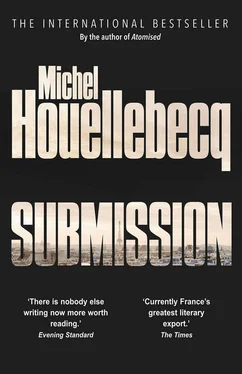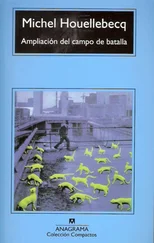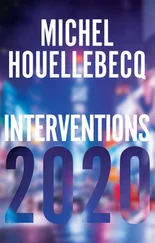In the metro I examined the business card that my new acquaintance had given me. It was elegant and tasteful, at least I thought so. Rediger provided his personal phone number, two office numbers, two fax numbers (one personal, one office), three email addresses, ill-defined, two mobile numbers (one French, the other British) and a Skype handle. This was a man who let you know how to get in touch. Clearly, since my meeting with Lacoue, I’d made my way into the inner circle. It was almost unnerving.
He gave a street address, too: 5 rue des Arènes, and for now that was all I needed to know. I remembered the rue des Arènes. It was a charming little street off the Square des Arènes de Lutèce, in one of the most charming parts of Paris. There were butcher shops, cheese shops recommended by Petitrenaud and Pudlowski — as for Italian speciality shops, forget it. This was all reassuring in the extreme.
At the Place Monge metro station, I made the mistake of going out the Arènes de Lutèce exit. Geographically, I wasn’t wrong — the exit led straight to the rue des Arènes — but I’d forgotten that there wasn’t an escalator, and that the Place Monge metro station was fifty metres below street level. I was completely exhausted and out of breath by the time I emerged from that curious metro exit, a hollow carved out of the walls of the park, its thick columns, cubist typography and generally neo-Babylonian appearance all completely out of place in Paris — as they would have been pretty much anywhere else in Europe.
When I reached 5 rue des Arènes, I realised that Rediger didn’t just live in a charming street in the Fifth Arrondissement, he lived in his own maison particulière in a charming street in the Fifth Arrondissement, and that this maison particulière was historic to boot. Number 5 was none other than that fantastical neo-Gothic construction (flanked by a square turret like a castle keep) where Jean Paulhan lived from 1940 until his death in 1968. Personally I could never stand Jean Paulhan, I didn’t like him as an éminence grise and I didn’t like his books, but there was no denying that he’d been one of the most powerful figures in French publishing after the war. And he’d certainly lived in a very beautiful house. My admiration for the Saudis’ funding only grew.
I rang the bell and was greeted by a butler whose cream-coloured suit and Nehru collar were somewhat reminiscent of the former dictator Gaddafi. I told him my name, he bowed slightly: I was expected. He left me to wait in a little entrance hall, illuminated by stained-glass windows, while he went to tell Professor Rediger that I’d arrived.
I’d been waiting two or three minutes when a door opened to my left and in walked a teenage girl wearing low-waisted jeans and a Hello Kitty T-shirt, her long black hair loose over her shoulders. When she saw me, she shrieked, tried awkwardly to cover her face with her hands, and dashed back out of the room. At that very moment, Rediger appeared on the landing and came down the stairs to greet me. He had witnessed the incident, and shook my hand with a look of resignation.
‘That’s Aïcha, my new wife. She’ll be very embarrassed that you saw her without her veil.’
‘I’m so sorry.’
‘No, don’t apologise. It’s her fault. She should have asked whether there was a guest before she came into the front hall. She doesn’t know her way around the house yet, but she will.’
‘Yes, she looks very young.’
‘She just turned fifteen.’
I followed Rediger up the stairs and into a large study with a ceiling that must have been almost five metres high. One of the walls was entirely covered with bookshelves. At a glance I noticed lots of old editions, mainly nineteenth century. Two solid metal ladders, mounted on rollers, provided access to the higher shelves. On the other side of the room, potted plants hung from a dark wooden trellis that ran the length of the wall. Ivy, ferns and Virginia creeper cascaded from ceiling to floor, twining along the edges of various picture frames, some of which held hand-lettered verses from the Koran, others large, matted photos of galaxy clusters, supernovas and spiral nebulas. In one corner a massive Directoire desk stood at an angle to the room. Rediger led me to the opposite corner, where two worn armchairs, upholstered in red-and-green stripes, were placed around a low, copper-topped table.
‘I do have tea, if you like,’ he said, inviting me to sit. ‘Or perhaps a drink? I have whisky, port — well, I have everything. And an excellent Meursault.’
‘The Meursault, then,’ I said, but I was a little bit confused. I had some idea that Islam prohibited drinking alcohol, at least that’s what I’d heard. To be honest, it wasn’t a religion I knew much about.
He left the room, presumably to see about the wine. My armchair faced a high, old, lead-mullioned window overlooking the Roman arena. The view was really something, I think it was the first time I’d had such a complete view of the terraces. And yet after a few minutes I found myself perusing the bookshelves. They were impressive, too.
The two bottom shelves were full of bound photocopies. These were dissertations from various European universities. As I browsed the titles, my eye was drawn to a philosophy dissertation, presented at the Catholic University of Louvain-la-Neuve, entitled ‘René Guénon: Reader of Nietszche’, by Robert Rediger. I was just pulling it from the shelf when Rediger came back into the room. I jumped, as if I’d been caught doing something wrong, and tried to slip it back in place. He walked over to me, smiling. ‘Don’t worry, there are no secrets here. And besides, why shouldn’t you be curious about the contents of a bookshelf? For a man like you, that’s almost a professional duty.’
Coming closer, he saw the title. ‘Ah, you’ve found my dissertation.’ He shook his head. ‘They gave me my doctorate, but it wasn’t much of a thesis. Nothing like yours, anyway. My reading was, as they say, selective. In retrospect, I don’t think Guénon was all that influenced by Nietszche. His rejection of the modern world was just as vehement as Nietzsche’s, but it had radically different sources. In any case, I’d write the thing very differently today. I have yours, too …’ he said, pulling another bound copy from the shelf. ‘As you know, we keep five copies in the university archives. So, considering how few researchers actually consult them in a given year, I thought I might as well keep one for myself.’
I could barely hear what he was saying — I was on the verge of collapse. It was almost twenty years since I’d been in the presence of ‘Joris-Karl Huysmans: Out of the Tunnel’. It was extraordinary how thick it was, almost embarrassing — it was, I suddenly remembered, 788 pages long. To be fair, it also contained seven years of my life.
Still holding my dissertation, he led us over to the armchairs. ‘It really is a remarkable piece of work …’ he insisted. ‘It reminded me very much of the young Nietzsche, the Nietzsche of The Birth of Tragedy .’
‘Please, you’re exaggerating.’
‘I don’t think I am. The Birth of Tragedy was, after all, a sort of dissertation. And in both you find the same incredible profligacy, the same profusion of ideas, all simply flung onto the page, without the slightest preparation so that, really, the text is almost impossible to read — the astonishing thing is that you managed to keep it up for almost eight hundred pages. By the time he wrote the Untimely Meditations , Nietzsche had calmed down. He realised that you can’t overwhelm the reader with too many concepts at once, that you have to structure your argument and give him time to breathe. The same thing happened to you in Vertigos of Coining , which made it a more accessible book. The difference between you and Nietzsche is that Nietzsche kept going.’
Читать дальше







